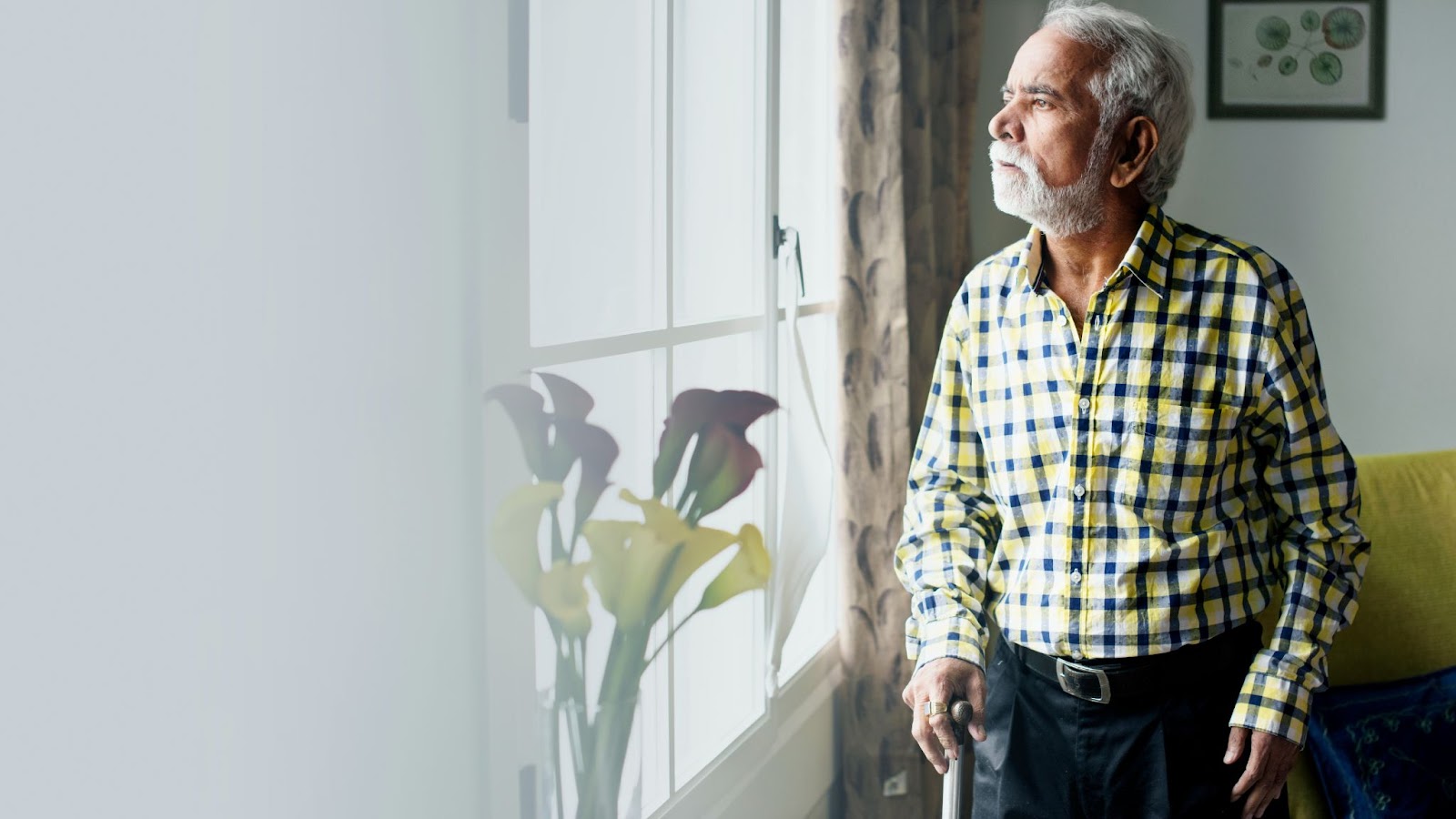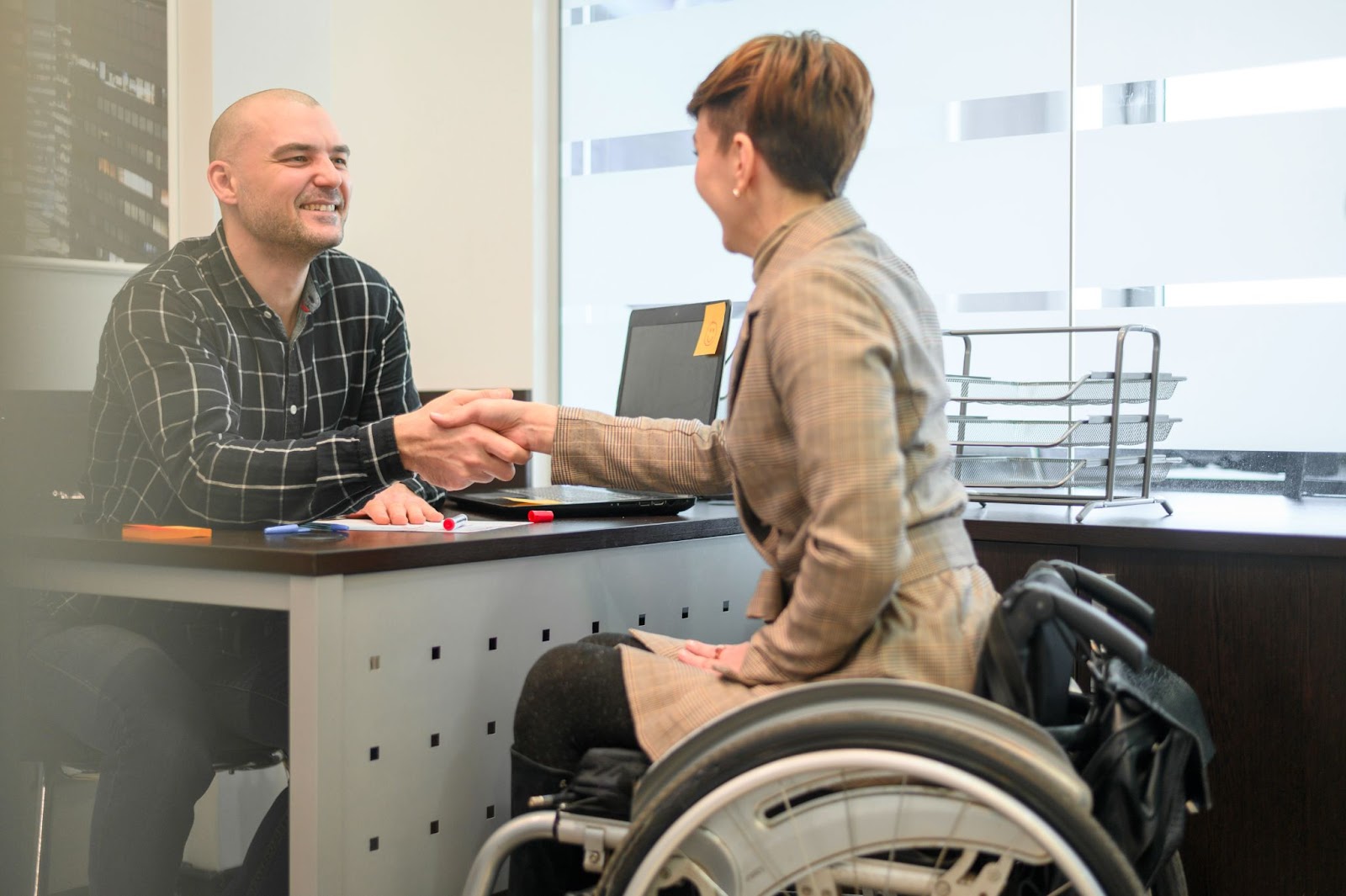Australia’s Multicultural Healthcare Landscape
Australia is known for its rich cultural diversity, with a large portion of its population born overseas or having at least one parent born abroad. According to qualitative data from the Australian Bureau of Statistics, more than 29% of Australians were born overseas, and nearly 49% have at least one overseas-born parent. With such diverse cultural backgrounds, language barriers and cultural differences can significantly impact healthcare access and quality for many individuals.
Multilingual clinicians, who possess fluency in languages commonly spoken by culturally and linguistically diverse communities themselves, serve as essential bridges between healthcare providers and participants. Their ability to communicate directly with participants in their native language ensures accurate understanding, minimises miscommunication, and builds rapport and trust.
Breaking Down Language Barriers for Linguistically Diverse Backgrounds
Language barriers in healthcare settings can lead to misunderstandings, misdiagnoses, and compromised participant safety. When participants cannot effectively communicate their symptoms, medical history, or concerns, clinicians may miss critical information that could influence treatment decisions. Additionally, participants may feel anxious, disempowered, and unheard when they cannot express themselves fully.
Multilingual clinicians play a pivotal role in breaking down these barriers by facilitating clear and effective communication. They can obtain comprehensive medical histories, conduct thorough consultations, and provide clear instructions to participants. As a result, participants feel more engaged and empowered in their healthcare journey, leading to better health outcomes.
Enhancing Access to Healthcare Services
Language barriers are among the leading factors contributing to healthcare disparities in Australia. For individuals who do not speak English proficiently, seeking medical attention becomes daunting and often discouraging. Multilingual clinicians make healthcare services more accessible and equitable for these communities by eliminating language-related obstacles.
When participants have access to language services and clinicians who speak their language, they are more likely to seek regular medical care, follow treatment plans, and adhere to preventive measures. This improved access to language services helps prevent the escalation of minor health issues into more serious conditions and reduces the burden on emergency healthcare services.
Fostering Cultural Awareness and Competence in Health Professionals
In addition to language proficiency and cultural competency, multilingual clinicians bring cultural awareness and competence to the healthcare setting. Understanding and respecting diverse cultural practices, beliefs, and health-seeking behaviours are essential for providing participant-centred care.
Cultural awareness among clinicians ensures that medical decisions are made in the context of a participant’s cultural background and preferences. This approach can prevent the imposition of treatments that may conflict with a participant’s cultural or religious beliefs. Moreover, it enhances the participant-provider relationship, as participants feel respected and valued when their cultural identity is acknowledged and respected.
Promoting Inclusivity and Reducing Discrimination in Health Services
Cultural competence is essential not only in clinical interactions but also in addressing systemic barriers that may contribute to healthcare disparities. Multilingual clinicians can advocate for policies and practices that promote inclusivity and reduce discrimination in healthcare settings.
For instance, they can participate in cultural sensitivity training for other healthcare professionals, raise awareness about the importance of diversity in the workforce, and contribute to the development of culturally and linguistically diverse and appropriate healthcare materials. By actively engaging in these initiatives, multilingual clinicians help create a more welcoming and supportive healthcare environment for all participants, regardless of their cultural background.
Improving Patient Satisfaction and Quality Health Care
Patient satisfaction and quality of health care itself are closely linked to effective communication and cultural understanding. When participants feel heard, respected, and understood, they are more likely to report higher satisfaction with their healthcare experience.
Multilingual clinicians have the advantage of building stronger connections with participants by speaking their own language and demonstrating cultural sensitivity. This level of trust and comfort leads to increased participant engagement, better treatment adherence, and more accurate health information exchange, all of which contribute to improved health outcomes and a higher quality of care.
Case Studies and Success Stories
Numerous case studies and success stories highlight the positive impact of multilingual clinicians on healthcare services in Australia. For example, in a rural community with a significant immigrant population, the introduction of multilingual clinicians improved attendance at medical appointments, reduced unnecessary hospital visits, and increased early detection and management of chronic conditions.
In another instance, a refugee community struggling to access healthcare services due to language barriers saw a substantial increase in medical consultations after a clinic employed a multilingual clinician. The clinician not only used medical interpreter services provided language support but also acted as a cultural broker, ensuring that participants’ unique needs and concerns were adequately addressed.
Case Study 1: Improving Diabetes Management in a Multicultural Community
A multilingual clinician leads a diabetes management program in a culturally diverse community, using culturally appropriate education and tailored treatment plans to improve participant outcomes.
Case Study 2: Overcoming Language Barriers in Emergency Care
A multilingual clinician intervenes during an emergency situation, bridging the language gap between a non-English speaking participant and medical personnel, ensuring accurate treatment.
Key Drivers of Cultural Awareness
Language Barrier Mitigation
Language barriers are among the most significant challenges in delivering effective healthcare to diverse populations. When participants and clinicians do not share a common language, misunderstandings can occur, leading to medical errors, decreased participant satisfaction, and reduced compliance. Multilingual clinicians break down these barriers, enabling clear communication and comprehension between participants and healthcare providers.
Culturally Sensitive Communication
Effective communication in healthcare involves more than just language proficiency. It also requires an understanding of cultural norms, practices, and communication styles. Multilingual clinicians are better equipped to interpret participants’ non-verbal cues and ensure that messages are conveyed accurately and sensitively.
Establishing Trust and Rapport
Trust is a critical element in the participant-clinician relationship. Patients are more likely to trust clinicians who speak their native language and demonstrate an understanding of their cultural background. Multilingual clinicians have a unique advantage in building rapport and fostering a therapeutic alliance with participants from diverse cultural backgrounds.
Improved Health Literacy
Health literacy refers to an individual’s capacity to understand and navigate healthcare information. Patients with limited proficiency in the dominant language may struggle with health literacy, leading to suboptimal health outcomes. Multilingual clinicians can provide information in participants’ preferred languages, increasing their comprehension and promoting better decision-making regarding their health.
Challenges Faced by Multilingual Clinicians
While multilingual clinicians play a crucial role in driving cultural awareness in Australian healthcare, they also encounter various challenges in their practice:
Language Complexity
Australia is a culturally and linguistically diverse country, with numerous languages spoken by different ethnic communities. Multilingual clinicians may not be fluent in every language, limiting their ability to communicate with all participants effectively.
Cultural Sensitivity Training
Cultural sensitivity requires continuous education and training. Multilingual clinicians need support and resources to stay updated on cultural practices and beliefs to ensure they offer culturally competent care.
Emotional Burden
Multilingual clinicians may face emotional burdens, especially when treating participants from war-torn regions or traumatic backgrounds. They may require additional support to cope with the emotional toll of caring for participants with distressing histories.
Culturally competent healthcare systems
Enhanced Patient Satisfaction
When participants can communicate comfortably and understand their healthcare providers, they are more likely to feel satisfied with their care. This satisfaction positively impacts their overall healthcare experience and encourages them to seek medical attention promptly.
Reduced Healthcare Disparities
Language and cultural barriers often contribute to healthcare disparities, leading to unequal access to quality care. Multilingual clinicians can help bridge these gaps and ensure that all participants receive equitable healthcare services.
Better Healthcare Outcomes
By promoting effective communication and understanding, multilingual clinicians contribute to better participant outcomes. Patients are more likely to adhere to treatment plans, leading to improved recovery rates and long-term health management.
Improved Healthcare Access
Multilingual clinicians play a crucial role in making healthcare services accessible to participants who might otherwise face difficulties in navigating the health system, due to language barriers.
Initiatives to Promote Multilingual Clinicians
Language Education in Healthcare Training
Introducing language education in healthcare training programs can foster a generation of clinicians proficient in multiple languages, promoting cultural awareness and communication skills.
Diversity and Inclusion Initiatives
Healthcare institutions can adopt diversity and inclusion initiatives that actively recruit and support multilingual clinicians from diverse cultural backgrounds.
Interpreter Services and Technology
Incorporating interpreter services and language translation technologies can enhance communication between participants and healthcare providers, even when multilingual clinicians are not available.
Multilingual Clinicians and Community Engagement
Community Outreach Programs
Multilingual clinicians can play a crucial role in community outreach programs, promoting health literacy and preventive care among diverse populations.
Cultural Competency Workshops
Healthcare organisations can organise cultural competency workshops led by multilingual clinicians to educate fellow staff and family members on various cultural practices and sensitivities.
Patient Advocacy
Multilingual clinicians can act as participant advocates, ensuring that participants’ cultural preferences are respected throughout their healthcare journey.
Future Prospects and Recommendations
Expansion of Multilingual Healthcare Workforce
Australian healthcare institutions should focus on expanding the multilingual workforce to cater to the increasing cultural diversity. To achieve this goal, several strategies can be implemented:
Diversified Recruitment
Healthcare organisations should actively seek out multilingual candidates during the recruitment process. Job postings can specifically mention the preference for candidates proficient in multiple languages. Additionally, collaborations with local community organisations and language schools can help identify potential candidates with linguistic skills.
Language Education Incentives:
Healthcare institutions can offer language education incentives to their staff, encouraging them to learn additional languages. This can be in the form of financial support health professional training or paid study leave for language courses. Supporting employees in enhancing their language skills demonstrates a commitment to cultural competence and diversity within the organisation.
Scholarships and Grants
Providing scholarships and grants to students pursuing healthcare-related degrees who have proficiency in multiple languages can attract more multilingual individuals to the healthcare field. This can be particularly beneficial for students from culturally and linguistically diverse backgrounds who may already possess language skills relevant to the participant population.
Collaboration with Educational Institutions
Healthcare organisations can collaborate with universities and vocational training institutes to develop programs that emphasise language education and cultural competence for healthcare professionals. These programs can be integrated into the curriculum to ensure that graduates are well-prepared to meet the linguistic and cultural needs of participants.
Multilingual Internships and Residencies
Offering internships and residencies to multilingual healthcare students can provide them with valuable hands-on experience while serving diverse participant populations. This exposure can encourage them to pursue careers in healthcare settings that prioritise language proficiency.
Workforce Diversity Policies
Implementing workforce diversity policies that promote and celebrate linguistic diversity can create an inclusive environment for multilingual clinicians. Recognising and valuing language skills within the organisation can foster a sense of belonging and encourage employees to utilise their language abilities.
Language Skills Assessment
Conducting language skills assessments for existing healthcare staff can identify individuals with multilingual capabilities. Healthcare organisations can then provide incentives and opportunities for these staff members to apply their language skills in participant care.
Telemedicine and Teleinterpretation
Investing in telemedicine and teleinterpretation and interpreting services can bridge the gap when multilingual clinicians are not available. These technologies allow healthcare professionals to connect with participants in their preferred language, ensuring effective communication and understanding.
Cultural Exchange Programs
Creating cultural exchange programs that allow healthcare professionals to work in diverse communities, both domestically and internationally, can enhance their cultural competence and language skills. These experiences can broaden their perspectives and deepen their understanding of different cultures.
Mentorship Programs
Establishing mentorship programs that pair multilingual healthcare professionals with colleagues who wish to improve their language skills can foster knowledge-sharing and skill development.
Cultural Competency Accreditation
Cultural competency accreditation is an essential aspect of ensuring that healthcare organisations and health professionals themselves are equipped to deliver culturally sensitive and appropriate care to diverse participant populations. It involves formal recognition and validation of a healthcare provider’s ability to understand and respond effectively to the cultural beliefs, practices, and needs of their participants. This accreditation process seeks to improve the quality of care, reduce healthcare disparities, and promote participant-centred approaches in a culturally diverse society.
To achieve cultural competency accreditation, healthcare organisations may undergo comprehensive assessments and evaluations. These evaluations assess the organisation’s commitment to diversity and inclusion, the availability of multilingual health services throughout, and the integration of culturally competent care practices into their policies and procedures.
Accreditation programs also focus on ensuring that healthcare professionals, including multilingual clinicians, receive ongoing training and education in cultural competency. This training equips them with the knowledge and skills to understand the cultural backgrounds and beliefs of their participants, communicate effectively with individuals from diverse linguistic and cultural backgrounds, and provide care that respects and honours participants’ cultural preferences.
Cultural competency accreditation is not only beneficial to participants but also to healthcare providers and institutions. Accredited organisations are more likely to attract and retain a diverse workforce, including multilingual clinicians, who can offer a valuable skill set in improving participant care. This diversity within the workforce enhances cultural understanding and fosters a more inclusive work environment.
Moreover, cultural competency accreditation enhances an organisation’s reputation and trust within the community it serves. Patients from diverse backgrounds are more likely to seek care from institutions that are accredited and recognised for their commitment to cultural competence.
Additionally, cultural competency accreditation promotes ongoing quality improvement and continuous learning within healthcare organisations. It encourages regular assessments and updates to ensure that cultural competency practices remain relevant and effective.
Research on Multilingual Clinicians’ Impact
Further research is needed to quantify the impact of multilingual clinicians on healthcare, participants’ health outcomes, and participant satisfaction.
One area of research focuses on participant satisfaction and communication. Studies have consistently shown that participants who can communicate with healthcare providers in their native language report higher levels of satisfaction and feel more understood. Multilingual clinicians facilitate effective communication, ensuring that participants can express their concerns, understand their diagnoses, and actively participate in treatment decisions. This enhanced communication leads to increased participant engagement and adherence to treatment plans, ultimately contributing to improved health outcomes.
Furthermore, research has highlighted the positive impact of multilingual clinicians in reducing healthcare disparities. Linguistic barriers have been linked to disparities in healthcare access and quality of care for minority language speakers. Multilingual clinicians help overcome these barriers existing health services by providing linguistically appropriate care, thereby reducing disparities in healthcare utilization and treatment outcomes among diverse communities.
Another crucial aspect of research is the role of multilingual clinicians in preventive care and health promotion. These clinicians can effectively reach out to specific cultural groups, develop culturally competent health systems and tailored health education materials, and conduct community outreach programs. By addressing cultural preferences and practices, they encourage preventive care measures and early detection of health conditions, ultimately leading to better population health outcomes.
Research also examines the economic impact of multilingual clinicians. Language barriers often result in increased healthcare costs due to misdiagnoses, prolonged hospital stays, and unnecessary tests or treatments. By improving communication and understanding, multilingual clinicians can potentially reduce healthcare expenditures and enhance the overall efficiency of the healthcare system.
Moreover, studies have explored the benefits of cultural competence training for healthcare professionals, with a focus on multilingual clinicians. Cultural competence programs that emphasise language proficiency and cultural awareness have demonstrated positive effects on participant care and healthcare organisations. Health professionals and professional interpreters ongoing efforts have underscored the importance of ongoing training and support for multilingual clinicians to enhance their cultural competence and communication skills continually.
Conclusion
As Australia continues to embrace its multicultural identity, the role of multilingual clinicians in driving cultural awareness in healthcare becomes increasingly vital. These clinicians act as indispensable facilitators, breaking down language barriers, promoting inclusivity, and fostering cultural competence. By enhancing access to healthcare services and improving participant satisfaction, multilingual clinicians contribute to a healthier and more equitable healthcare system. Embracing and supporting the presence of multilingual clinicians in Australia’s healthcare landscape is a step toward ensuring that all individuals, regardless of their cultural background, can access high-quality and participant-centred care.





